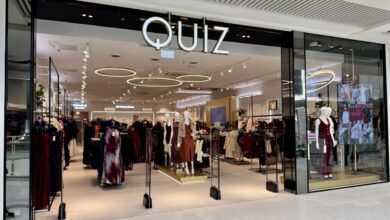Reeves eyes business rates rise for supermarkets and department stores
At present, retail, hospitality and leisure businesses receive a 40% discount on their bills, capped at £110,000

Register to get 1 free article
Reveal the article below by registering for our email newsletter.
Want unlimited access? View Plans
Already have an account? Sign in
Chancellor Rachel Reeves is reportedly considering increasing business rates for department stores and supermarkets as she looks to raise £1.7bn from businesses this autumn, according to The Telegraph.
The outlet revealed that the chancellor is looking to plug the £5bn hole left after the government was forced to abandon cuts on benefits and winter fuel payments for the elderly.
While the Treasury is said to have not yet decided on the new rates, the plans will reportedly look to target online giants and those with larger premises in order to reduce the rates paid by smaller stores.
However, the plans have prompted criticism from large retailers that are already contending with the rise in employers’ National Insurance contributions announced by the chancellor last year.
Industry figures have warned that the proposed tax changes could reduce Treasury revenue, as more properties may be left vacant and exempt from business rates.
Marks and Spencer is leading opposition among major UK retailers, telling ministers that the new retail levy would result in higher prices for consumers.
The Telegraph said that in evidence to Angela Rayner’s department, which oversees local authorities responsible for collecting business rates, Marks and Spencer said 111 of its stores would face higher charges under the reforms and could be at risk of closure.
It said: “Given larger retailers are often anchor tenants on the high street, taxing them to support smaller stores is a false economy – if larger shops close, smaller shops suffer.The proposed reforms could therefore accelerate the decline of the high street by encouraging retailers to close larger high street stores.”
It comes after the Office for Budget Responsibility issued a damning verdict on the state of the public finances, warning that Britain was living beyond its means.
Business rates are currently calculated using a “multiplier” set by ministers, applied to the estimated annual rental value of a property. At present, properties with a rateable value above £51,000 are charged 54.6p in the pound, while those below that threshold pay 49.9p.
At present, retail, hospitality and leisure businesses receive a 40% discount on their bills, capped at £110,000 – a measure that costs the Treasury £1.7bn a year.
From next year, the relief will be withdrawn and replaced with a lower multiplier for properties with a rateable value below £500,000.







